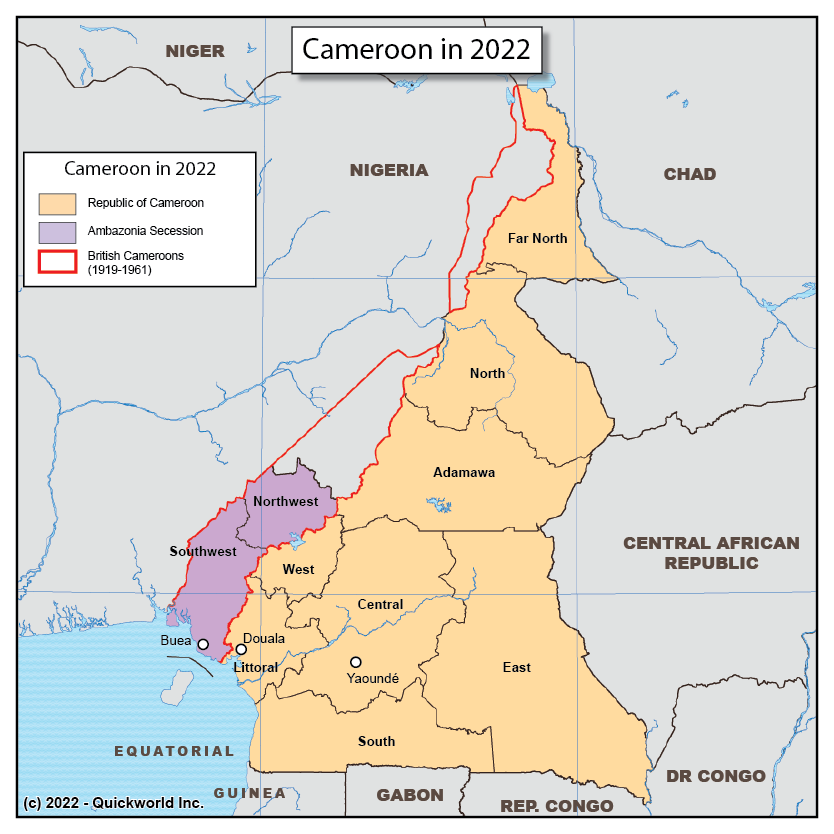Our Series on 21st Century Conflicts takes us to Cameroon, where a separatist movement is claiming a new country called Ambazonia. This entity has no international recognition and its forces do not fully control the region.
While African nations have known much internal strife and many civil wars, this conflict is slightly different, as it involves a dimension specific to Cameroon: the linguistic specificity of the Western Regions.
Cameroon was first colonized by Germany in the late 19th Century. During World War I, with the vast majority of its troops fighting on two fronts in Europe, Germany was soundly defeated in Africa and lost the four colonies it had. The British attacked Cameroon from Nigeria in the West, while the French attacked from Equatorial Africa in the South and East. The territory was split into two separate League of Nations Mandates, the bigger one awarded to France, the smaller one to Britain.
Decolonization in the early 1960s raised the question of reunification, and parts of British Cameroons voted to join Nigeria, while others opted to join the new Republic of Cameroon in a federation. This union soured quickly, as the Cameroon government became autocratic and centralized, and the English speaking minority felt treated like second class citizens.
The discontent took a more dramatic turn around 2016, in what is known as the "Anglophone Crisis" and a unilateral declaration of independence in 2017. This conflict is ongoing as of 2022.
The Cameroon Conflict


